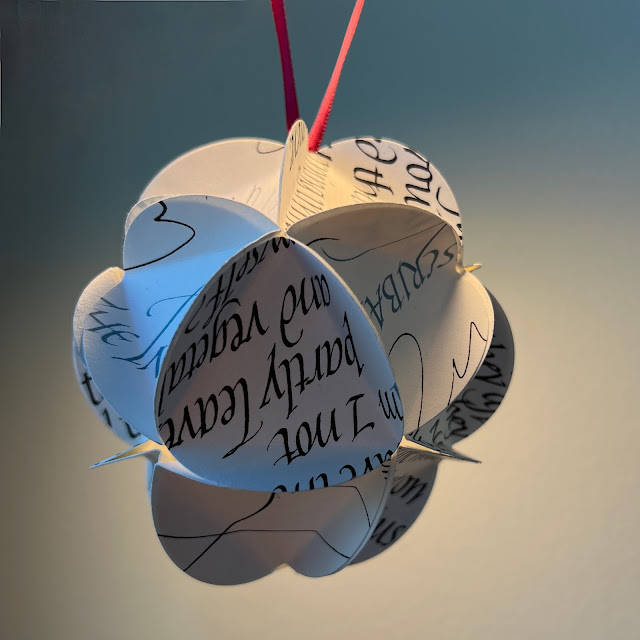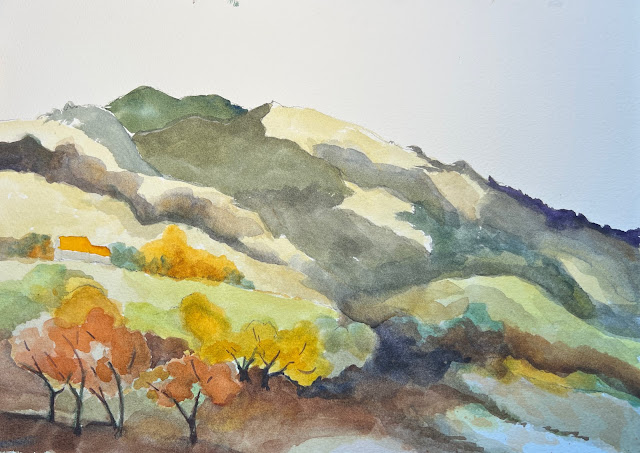 |
| One page from a daily sketchbook |
One year I wrote one sentence in a gratitude journal each day. At first, the ideas came easily. I tried to concentrate on small things: a cup of coffee handed to me by my husband Bill, the cat poking my face to wake me up, the joy of meeting a friend for a walk. After a while, I had to dig deeper to find something different that impacted my day. At the end of the year, I read through my statements and surprised myself by feeling better about the world I lived in.
Gratitude, sometimes an overworked word at this time of year, came slowly during that year. Writing down my thoughts helped me realize what mattered. This year, I didn't find the time to write in a gratitude book, but one human endeavor kept popping into my head. I turned to gratitude and found science. Two discoveries made a difference in my lifetime: antibiotics against infections and the development of vaccines.
.jpeg)
I was told that as a toddler, I had mumps. If you've ever held a baby with an earache, you must wonder how awful mumps, which can last for days, would be at that age. Luckily, I don't remember being sick except that I continued to have painful earaches throughout my childhood. The triple vaccine for whooping cough, diphtheria, and tetanus was already available and with the herd immunity essential for vaccines, I was never exposed to any of these. During my childhood, I had chicken pox and suffered through high fever and painfully itchy skin. I contracted rubella and measles from a friend as a teenager. With measles, I spent two weeks in bed with red rashes all over my body including down my throat. I had a hard time swallowing any food, but I was lucky not to develop deafness nor blindness nor some of the worst secondary conditions that can result from a case of measles. It wasn't until a few years later that vaccines were introduced to prevent those childhood diseases.

In the first year of elementary school, we all lined up to receive the new polio vaccines. We were well aware of the consequences of that disease. We had all seen photos of the rows of iron lungs, breathing for the people inside them, but we also had a personal experience. A friend contracted polio before the vaccines were available. She continued to walk with the assistance of crutches and braces on her legs. Her life was changed forever by polio.
My dad was the only person I knew who didn't have the round scar on his arm from the smallpox vaccine. I was told that he had had smallpox and survived. Because of the smallpox vaccine, smallpox has been eradicated around the world.
In our turbulent world, there is much pain, suffering, joy, and pleasure. We now have vaccines for flu, pneumonia, RSV, and COVID. We can be a healthier world because of the work of scientists. Today, I want to thank scientists for developing these life-saving preventions that continue to significantly improve our lives. What a difference they have made.
************
Check out this article in VOX about the importance of herd immunity:
https://www.vox.com/future-perfect/386215/trump-rfk-jr-vaccines-health-measles-chart
If you are a nurse and agree about the importance of vaccines, you can support the Nurses for America petition here:
https://nursesforamerica.net
 |
| View from my window December 2024 |






.jpeg)


.jpeg)



.jpeg)


.jpeg)

